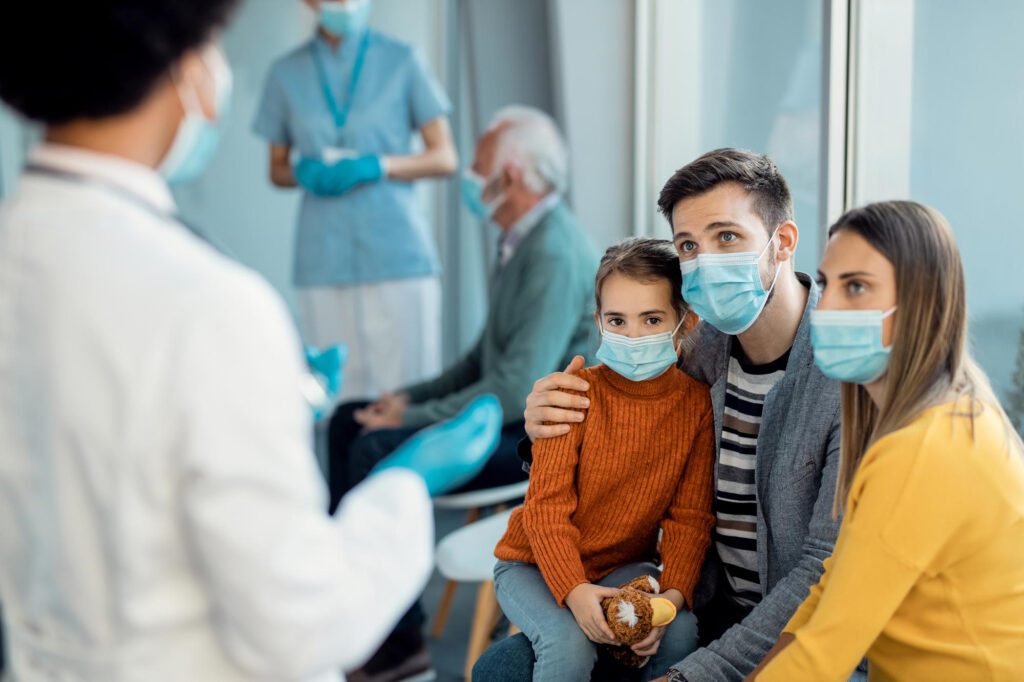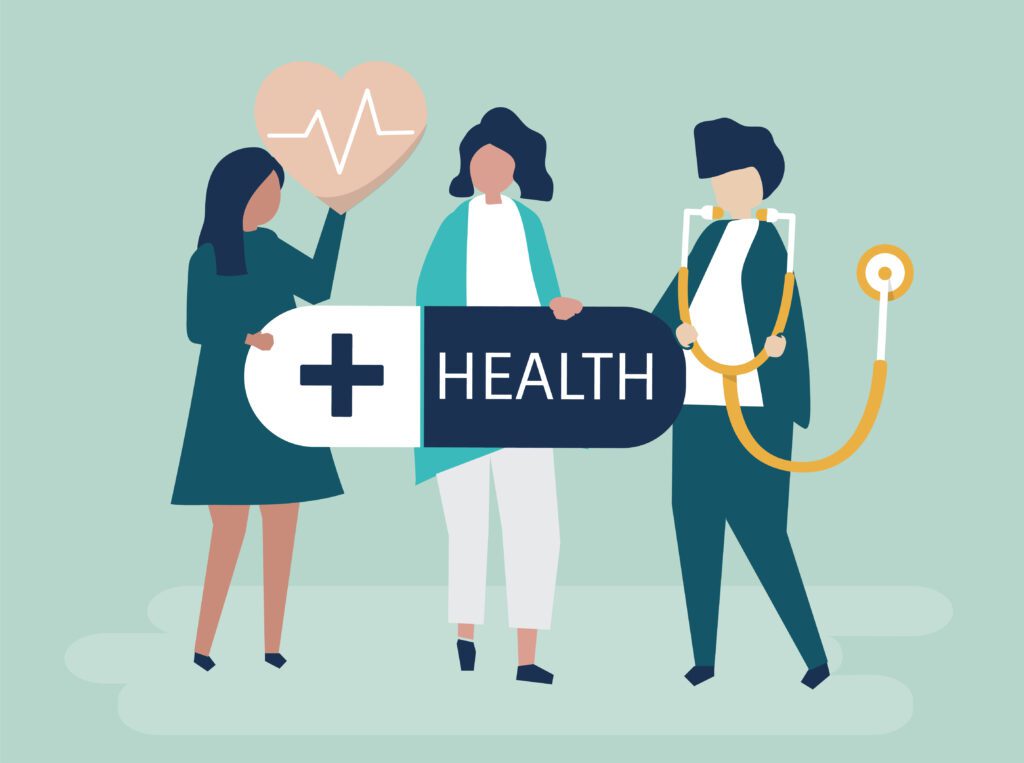Here, we are sharing information on the topic “information about preventive healthcare.” The secret to maintaining your health and identifying health issues early on, before they worsen or become more challenging to cure, is preventive health. Most of us assume that we visit the doctor when we are ill or when we require medical attention for a particular issue. Health prevention The term “trusted source” describes the regular medical attention you get to keep your health in check. Early diagnosis of medical issues is crucial in order to prevent complications.

information about preventive healthcare
One of the most crucial things you can do to safeguard your health is to prevent dangerous diseases before they arise. Regretfully, adoption isn’t nearly as strong as it should be. Approximately 8% of American individuals 35 years of age and older obtained the recommended preventative treatment, according to a 2018 survey.
What is preventive health, exactly?
- A range of medical services are included in preventive health, which aims to screen for and perhaps diagnose health problems before symptoms appear. You can live a longer, healthier life by receiving preventive healthcare.
- Adult preventative healthcare usually consists of advice regarding healthy eating and quitting smoking, as well as screenings for diseases like diabetes, cancer, and heart disease.
- Preventive healthcare for kids consists of annual physicals, immunizations, and tests for diseases including autism and lead poisoning.
What kinds of examinations, screenings, and treatments are included in adult preventative care?
- Adult preventive care includes inoculation against dangerous infections such as COVID-19 and the flu, as well as screening for chronic ailments such as diabetes and heart disease.
- It also includes counselling and education to support you in choosing a healthy lifestyle that safeguards your general health and wellbeing.
The screenings that are advised for you could change depending on your age and family medical history. The most popular adult preventative screenings are as follows:
- Screenings for prostate, colorectal, cervical, and breast cancer: These investigations are some of the most prevalent cancers that afflict both men and women, and early identification can prevent them from spreading or getting worse.
- Diabetes, cholesterol, and blood pressure screenings: These tests can identify common metabolic diseases that can be managed with medicine and a change in lifestyle. They may cause significant illness and early death if left untreated.
- Immunizations: Although we typically associate vaccinations with children, adults too require regular vaccinations. Adults should obtain annual flu shots, COVID-19 vaccinations, and booster doses for childhood vaccinations that may have worn off.
- Counseling: counselling for prevention You might be able to get assistance from a trusted source for managing a chronic illness. It can also be used to check for mental health issues, assist you in choosing a healthy lifestyle, and help you stop smoking if you currently smoke.
What kind of care is deemed preventive for kids?
- Children who receive preventive care are shielded from some of the more serious illnesses that might afflict them, and they also undergo screenings to identify behavioral and medical issues. Children who receive preventive healthcare can maintain their health as they age.
- The Children’s Health Insurance Program always provides complete coverage for preventive healthcare for children, as do the majority of insurance policies (CHIP). Children can receive preventative care in a number of ways, such as:
- Well-child visits: These take place every year when your child turns a few months old. Measurements of your child’s growth and developmental milestones are part of well-child visits. During these appointments, routine screenings and vaccines are also carried out.
- Immunizations: Childhood vaccinations shield young people from life-threatening illnesses both now and in the future. Polio, hepatitis A and B, DTaP (diphtheria, tetanus, and pertussis), MMR (measles, mumps, and rubella), and chickenpox are among the common childhood immunizations (varicella).
- Screenings for behavioral and mental health issues: Pediatricians frequently check kids for mental health issues like depression, autism, and developmental delays.
- Blood tests: Throughout childhood, a number of blood test screenings will be carried out, such as measurements of a newborn’s bilirubin levels, examinations for anemia symptoms, and assessments of the level of lead in your child’s blood.
Top global causes of death that can be prevented as of 2001
| Cause | Deaths caused (millions per year) |
| Hypertension | 7.8 |
| Smoking | 5.0 |
| High cholesterol | 3.9 |
| Malnutrition | 3.8 |
| Sexually transmitted infections | 3.0 |
| Poor diet | 2.8 |
| Overweight and obesity | 2.5 |
| Physical inactivity | 2.0 |
| Alcohol | 1.9 |
| Indoor air pollution from solid fuels | 1.8 |
| Unsafe water and poor sanitation | 1.6 |
Frequently Asked Questions
(information about preventive healthcare)
What is the meaning of preventive healthcare?
Answer: routine medical care aimed at preventing diseases, illnesses, and other health issues. This care includes screenings, check-ups, and patient counselling.
What is preventive health policy?
Answer: The Preventive Health Care Plan is a comprehensive program created to offer a wide range of advantages to the clients, including: Free annual physical examinations are offered. Free medical advice, even over the phone. discounts on testing at radiology, pathology, and diagnostic labs. vending machines in pharmacies.
What are the three types of preventive health?
Answer: PREVENTION
- Primary prevention is taking action before negative health impacts manifest.
- Screening to detect diseases at the early stage is known as secondary prevention.
- Managing disease after diagnosis to reduce or eliminate it is known as tertiary prevention.

Conclusion
(information about preventive healthcare)
- In conclusion, by emphasizing early identification and intervention to stop the beginning or progression of diseases, preventive healthcare plays a critical role in preserving and enhancing overall well-being. It is impossible to overestimate the value of preventive healthcare because it not only improves personal health but also has a big impact on public health and healthcare systems.
- Preventive healthcare gives people the power to take charge of their health and lessens the demand on healthcare resources by encouraging healthy lifestyle choices, routine screenings, immunizations, and the early identification of risk factors. It moves the focus from reactively treating disorders to proactively preserving health.
So, this is how the topic “information about preventive healthcare” has been addressed.
For more information related to this topics, click here.
You may also visit our Instagram page by Clicking here.
You may also visit our YouTube channel by clicking here
Thank you for visiting our site.






